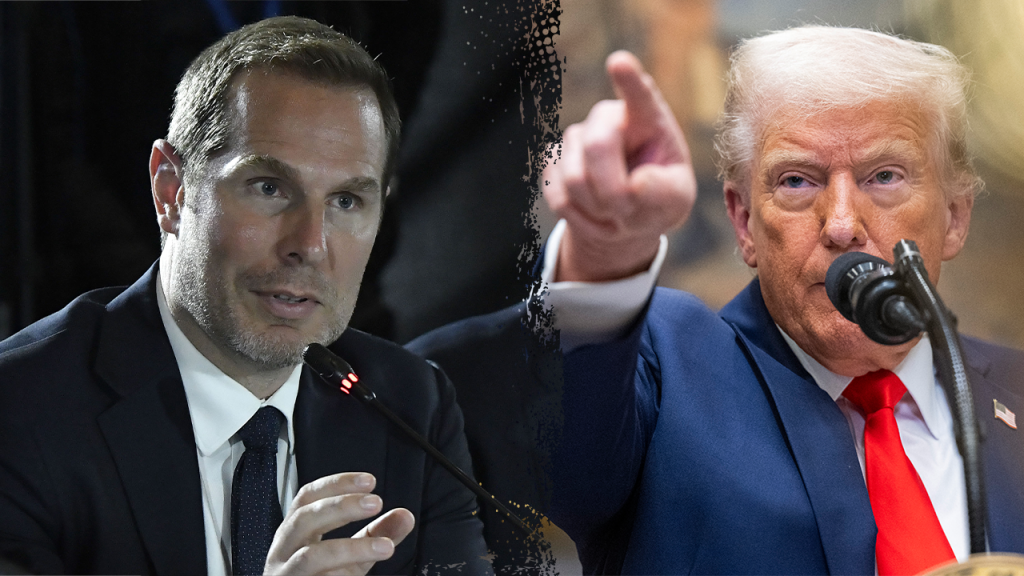In a recent closed-door meeting, the acting head of the U.S. Agency for International Development (USAID), Peter Marocco, informed congressional lawmakers that his team was preparing potential criminal referrals due to alleged misuse of taxpayer dollars related to foreign development programs. This internal review hints at a troubling pattern of illegal activities within the agency, which is crucial for delivering U.S. foreign aid. Amid ongoing scrutiny and reform efforts, questions surrounding the agency’s accountability and management of funds have risen sharply.
| Article Subheadings |
|---|
| 1) Review of Misuse Allegations and Accountability Challenges |
| 2) Impact of Supreme Court Decision on USAID Activities |
| 3) Insights from Congressional Discussions on USAID |
| 4) The Role of DOGE in Examining Wasteful Spending |
| 5) Reactions from Lawmakers and Experts |
Review of Misuse Allegations and Accountability Challenges
The acting head of USAID, Peter Marocco, discussed potential criminal referrals during a meeting with the House Foreign Affairs Committee. The potential misconduct revolves around taxpayer dollars designated for foreign aid programs. Officials within his team have initiated an internal review that aims to outline any illegal activities attributed to the agency. This development poses significant implications for the future trajectory of USAID and the crucial services it provides.
Established over six decades ago, USAID is tasked with promoting global stability and humanitarian assistance, often in regions suffering from economic downturns or crises. However, recent allegations have raised fundamental questions about the agency’s operational integrity. Many believe the existing structure of USAID fosters conditions that make accountability extremely challenging.
Impact of Supreme Court Decision on USAID Activities
On the same day as Marocco’s address to lawmakers, the Supreme Court issued a significant ruling concerning the Trump administration’s handling of USAID payments. The court denied the administration’s request to suspend a previous lower court order compelling the government to release nearly $2 billion in payments owed to international aid organizations. This decision has sparked discussions about the financial management of U.S. foreign aid and its implications for ongoing projects.
By allowing these funds to flow, the ruling temporarily alleviates concerns among contractors and non-profits that depend on USAID for financial support. This decision underscores the importance of maintaining continued support for humanitarian efforts while a broad investigation into the alleged misuse of funds takes place.
Insights from Congressional Discussions on USAID
During discussions, lawmaker Brian Mast, the chairman of the House Foreign Affairs Committee, highlighted the inherent challenges related to accountability within USAID. He expressed concern that many programs under the agency are fundamentally designed in ways that obscure how taxpayer dollars are spent. In an increasingly scrutinizing political environment, these insights pose a serious challenge for USAID as it navigates reform efforts and attempts to restore public trust.
The review of contracts and grants awarded by USAID is a critical component of these discussions. It has become clear that transparency and accountability measures must be re-evaluated to minimize instances of misuse. The agency’s future, as well as the sustainability of its programs, may significantly depend on the outcome of these deliberations.
The Role of DOGE in Examining Wasteful Spending
The Department of Government Efficiency (DOGE), led by entrepreneur Elon Musk, has placed USAID under its microscope as part of a broader initiative to root out wasteful government spending. This focus creates additional pressure on the agency to demonstrate its efficiency in administering foreign aid and managing taxpayer money.
DOGE’s involvement suggests a potential overhaul of how agencies like USAID operate. There is mounting speculation that the agency may be restructured or streamlined to enhance its operational effectiveness. What lies ahead for USAID may very well depend on both internal and external investigations into its fiscal practices.
Reactions from Lawmakers and Experts
The revelations regarding potential mismanagement within USAID have sparked varied reactions from various lawmakers and experts in the field. Lawmakers have voiced a desire for more stringent oversight mechanisms to prevent the misuse of funds, while experts advocate for enhanced transparency to ensure that foreign aid reaches those who need it most.
Critics have called for a more comprehensive audit of existing programs, questioning whether they effectively serve their intended purpose. While some lawmakers express confidence in the agency’s ability to reform, others remain skeptical, believing deeper systemic changes are essential for progress. These discussions are expected to continue as the findings of the internal review become publicly available.
| No. | Key Points |
|---|---|
| 1 | Peter Marocco addresses Congress about potential criminal referrals concerning misuse of funds. |
| 2 | Supreme Court denies the Trump administration’s request to block nearly $2 billion in USAID payments. |
| 3 | Congressional discussions reveal systemic issues regarding accountability in USAID operations. |
| 4 | DOGE is investigating USAID as part of broader efforts to eliminate wasteful government spending. |
| 5 | Lawmakers and experts call for increased oversight and transparency in USAID operations. |
Summary
The ongoing scrutiny of USAID underscores the complexities involved in managing foreign aid and ensuring that taxpayer dollars are used effectively. With potential criminal referrals on the horizon and calls for greater accountability, the agency finds itself at a significant crossroads. The outcomes of internal reviews and legislative discussions will likely have lasting impacts on the effectiveness and operational structure of USAID in the future.
Frequently Asked Questions
Question: What is USAID’s primary function?
USAID is the U.S. government agency responsible for administering foreign aid aimed at promoting global stability, humanitarian assistance, and economic growth in fragile regions.
Question: How does the Supreme Court ruling affect USAID?
The Supreme Court ruling allows nearly $2 billion in payments to continue flowing to aid groups, thereby supporting ongoing humanitarian projects and potentially stabilizing international aid efforts.
Question: What role does DOGE play in relation to USAID?
DOGE, led by Elon Musk, aims to root out wasteful government spending, including investigating the operations of USAID to enhance efficiency and accountability in foreign aid distribution.


